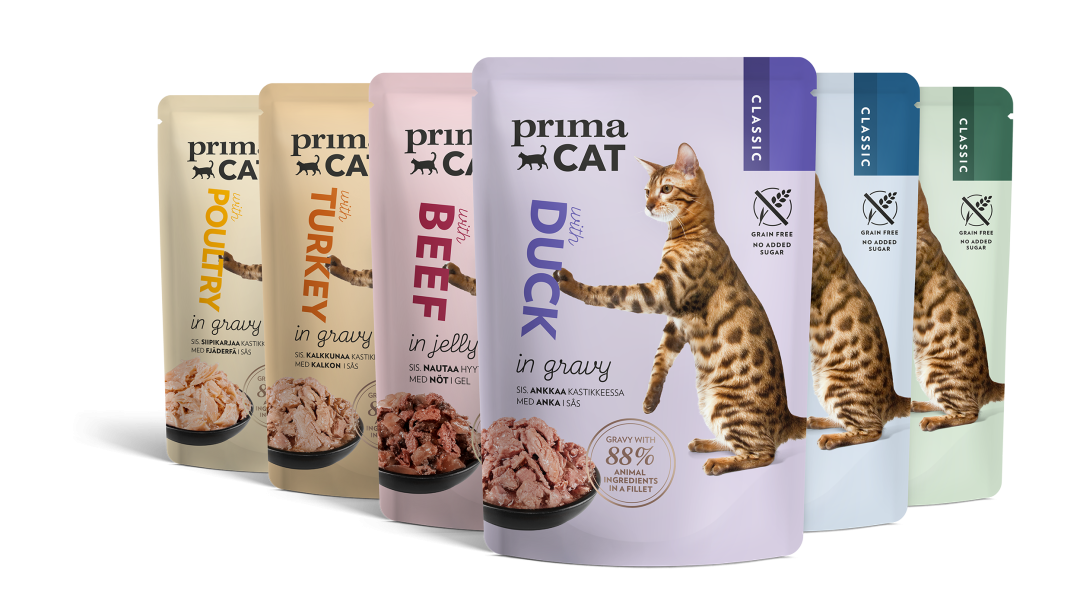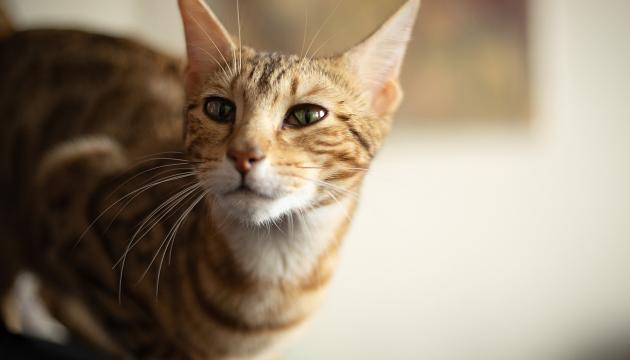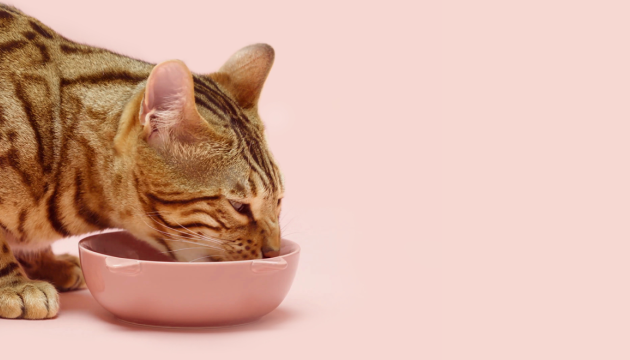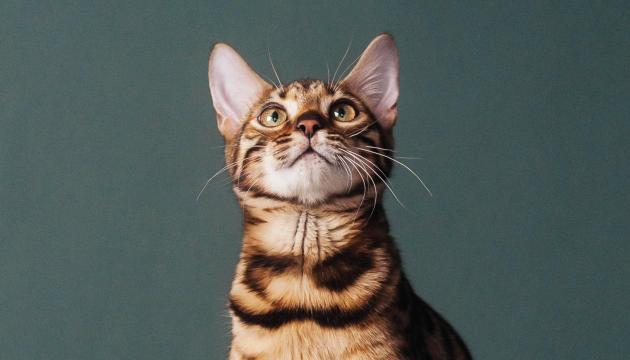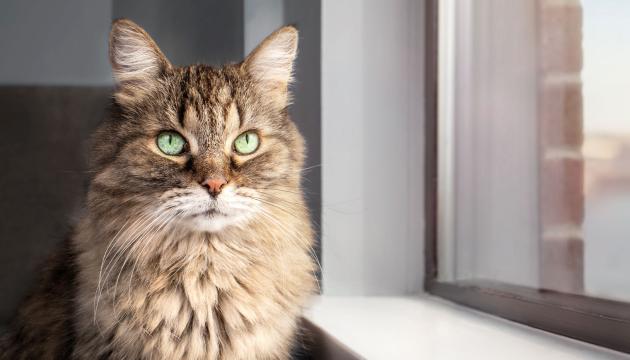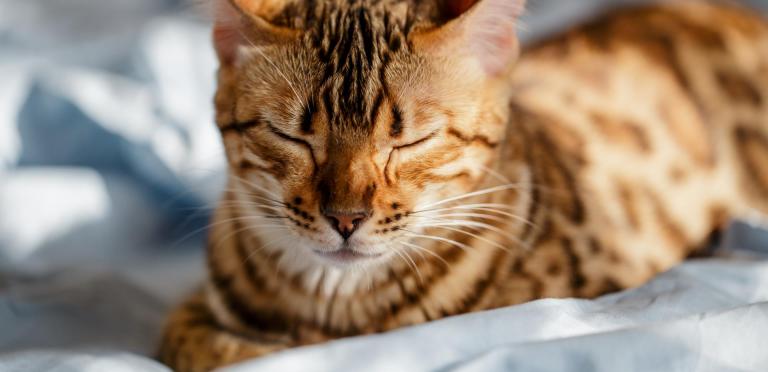

My cat is not eating – What to do
Sometimes, a cat owner might find themselves pondering the reasons why their cat is not eating. It is normal for cats not to like new cat food right away.
Cats are typically selective eaters, whose eating behaviour is often guided by a habit towards a certain type of food. This is partly because familiar food is also safe, and new scents and flavours can be suspicious in the cat's view.
Did you know that a cat is a generalist predator which, in the wild, adapts to the food available in its environment and eats a variety of different protein sources? Read more about the cat’s natural diet.
If your cat is not eating, it could be sick or have some other issue that needs a vet's attention. For instance, dental pain can make the cat stop eating. It is crucial for cat owners to know their cat's normal eating habits and preferences. This way, they can spot any unusual changes in their cat's behaviour.
Read this article for our tips on how to improve your cat's appetite and how to feed a fussy cat.
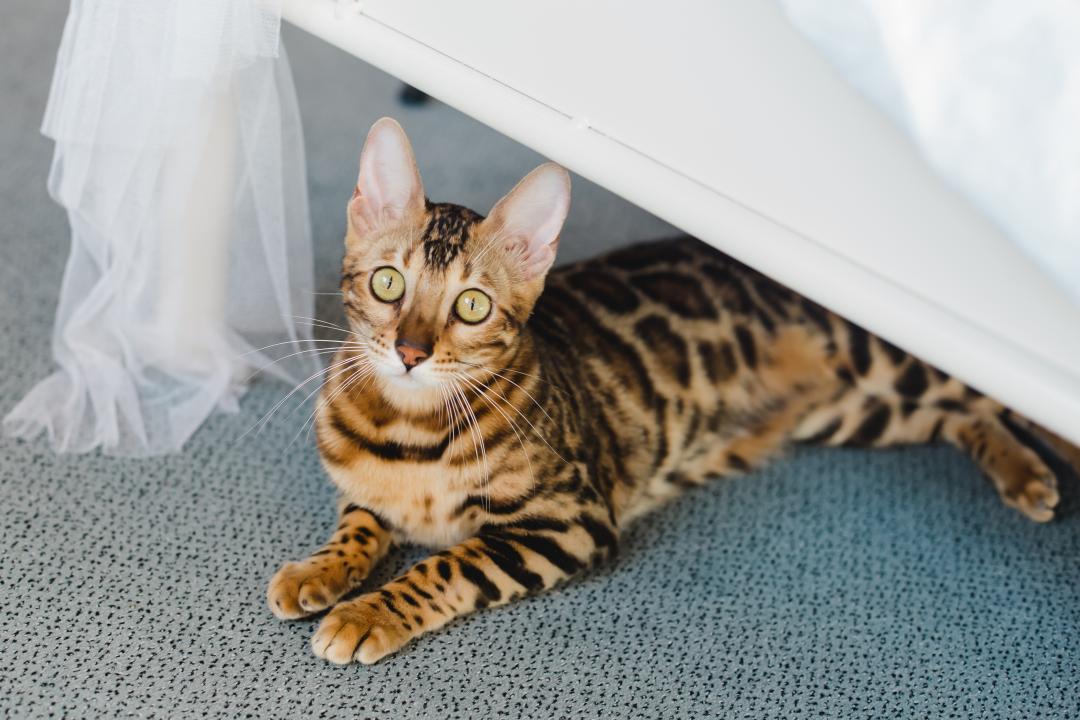
What to do if the cat is not eating?
Firstly, figure out if your cat is not eating the food you are offering because it does not like it, or if there might be a health issue that needs to be checked by the vet.
Do not try to make your cat eat new food by not feeding it at all. Cats cannot go without food for long, as not eating for just over a day can cause serious harm. If your cat has not eaten anything for 1–2 days, it is time to visit the vet.
If your cat is not eating and it is not something that needs a vet, you can try these tips to stir up the cat’s appetite:
- If your cat eats both wet and dry food, always offer them separately. You can leave wet cat food out for your cat just like dry food, but make sure to clean up any old food from the bowl regularly.
- Keep your cat's eating area and bowl clean. Cats choose what food to eat with their keen sense of smell, so the scent of spoiled food or other unusual smells near the cat's food can make the cat avoid its food.
- Usually, if the food is too cold, a cat is not eating it. To encourage your cat to eat, you can let wet food from the fridge warm up in the cat's bowl to reach a more appealing temperature.
- If your cat is not eating all its food at once, that is okay. The natural eating habits of cats include several small meals throughout the day. Leave the food out so your cat can come back to it when it feels hungry.
- Find out what foods your cat likes the most and try to stick to those to make sure the cat is happy with its meals.
Variety in feeding is important, which is why it is good to get your cat used to eating different kinds of food from kittenhood. Check out our tips for feeding a kitten.
Getting your cat used to new food can take time and requires both patience and planning. Read our guide on how you can teach your cat to eat new cat food.
How to feed a fussy cat: More tips to keep in mind
Even if your cat likes the new food straight away, always change the food gradually. Cats have sensitive digestion, and changing the diet too quickly can upset the cat’s stomach.
Be especially patient if you have been feeding your cat a diet high in grains or added sugars. Cats do not need carbohydrates, especially not added sugar, but they can become easily addicted to them. This can make it harder for your cat to switch to sugar-free cat food, and getting used to new food may take longer than usual. Read more about the harm that added sugar can cause in cat food.
As your cat’s main diet, choose a high-quality, meat-rich complete food that supports your cat's wellbeing. Do you know how to spot high-quality cat food on the store shelf? Read our guide!
If your cat prefers dry food over wet food, make sure the cat gets enough water. PrimaCat Soup and Fillets supplementary foods are great for improving your cat’s water intake, since the main water source for cats is their food. Check out our tips for keeping your cat hydrated.
Have you tried the popular PrimaCat Classic wet foods for your cat? The Classics are completely grain-free complete foods, available in both jelly and gravy options in a variety of flavours, even for the pickiest eaters. Explore our products.
